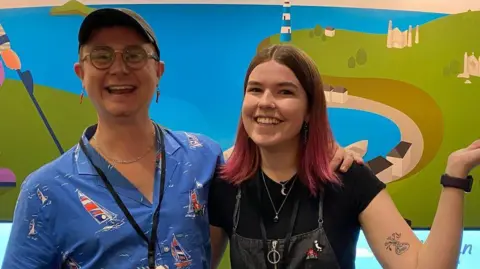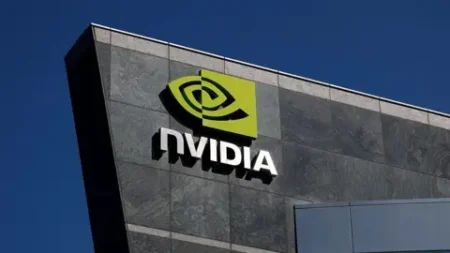**Jobs in Video Games Dried Up, So We Made Our Own**
In the modern landscape of the video game industry, many aspiring developers are finding themselves facing increasingly bleak prospects. Holly Hudson, a recent graduate of a university video game design course, had dreams of securing a job at a game studio as a 3D artist upon completing her studies. However, the reality has proven to be quite different. “I’ve applied to so many jobs this year,” the 25-year-old reflects, noting the harshness of the current job market. Her graduation in 2023 coincided with a significant downturn in the industry, marked by numerous layoffs and studio closures that have continued to plague aspiring game developers into 2025.
According to the industry body UKIE, as of June 2023, there were fewer than 700 active vacancies in UK game development, with less than 5% of those positions being open to juniors. Despite this unfavorable scenario, Holly and her peers have sought new avenues to express their creativity and bring their game ideas to life independently. In the midst of job scarcity, Holly teamed up with fellow graduate Harvey Hayman to develop their own video game titled “Morgan: Metal Detective”. This cozy, slow-paced adventure game is set in the picturesque setting of Cornwall and has been a labor of love, primarily funded out of their own pockets.
The game’s narrative follows a young girl named Morgan, who utilizes her late grandfather’s metal detector to find lost items on a small island and return them to its residents. For Holly and Harvey, the project is deeply personal, drawing inspiration from their childhood holidays in Southwest England. “It’s basically Holly and I trying to pick up contracting work where we can,” Harvey explains, revealing the balance between their aspirations for the game and the financial realities they face as they juggle multiple jobs to support themselves.
As they strive to get their project completed, funding for new video games has decreased significantly, complicating the process. Despite these hurdles, they are among a growing number of developers who find themselves venturing out on their own, navigating the startup landscape of the gaming industry.
The figures indicate a growing trend among soon-to-be graduates; approximately 4,800 students began video game-related degrees in 2021. Holly believes the path taken by her and Harvey is now common among young developers. “There’s a couple of us that have gone on to start our own studios,” she explains, noting that other creators have also found success creating their own content in platforms like Roblox and Fortnite, using the tools provided within these games to craft unique experiences.
One notable example is Sonny Tranter, who began his creative journey crafting maps in Minecraft before shifting his focus to Fortnite. His creations gained popularity, leading to partnerships with well-known brands, and he has since established his own studio dedicated to producing Fortnite content. With 40% of Epic Games’ net revenue being shared among creators based on engagement, many view this model as a potential pathway to success, though it does present its own challenges, particularly for newcomers in a crowded space.
While developers like Holly and Harvey face mounting difficulties with gaining visibility as the market is flooded with new titles, Harvey points towards the creative ways they have tried to promote “Morgan: Metal Detective.” Without the financial backing to afford larger marketing campaigns, they have sought opportunities to showcase their game at events and conferences, which have positively impacted their wishlist numbers on platforms, building momentum during the game’s development.
Though the video game landscape is filled with obstacles, UKIE informs that there are “more routes than ever” into gaming careers. They are currently in discussions with governmental bodies on how to establish paths through apprenticeships and skill development programs to assist newcomers. However, challenges persist. Scott Alsworth from the IWGB union highlights the tough conditions faced by workers in the UK gaming industry, especially following mass layoffs and hints of AI-driven displacement.
Regardless of the difficulties present in the industry, both Holly and Harvey maintain a positive outlook, encouraging those with a passion for video games not to shy away from pursuing it. “The games industry is so friendly and supportive,” says Holly, emphasizing the importance of community in navigating the uncertainties of starting a career in game development. She is optimistic that the rising tide of young developers starting their own studios in the coming years will foster an environment of innovation and opportunity.
This path, while fraught with challenges, ultimately holds the promise of hope, showcasing the resilience of creative minds in the face of adversity. Holly’s experiences serve as an encouraging testament that alternate routes to success exist, illuminating a way for aspiring game developers to bring their ideas to life and share their unique perspectives with the gaming community.











